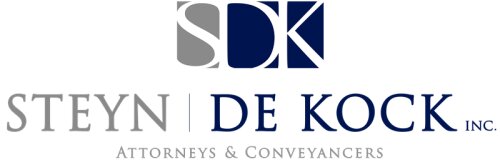Best Energy Regulatory Law Lawyers in Welkom
Share your needs with us, get contacted by law firms.
Free. Takes 2 min.
List of the best lawyers in Welkom, South Africa
About Energy Regulatory Law in Welkom, South Africa
Energy Regulatory Law in Welkom, South Africa, forms part of broader national and provincial regulatory frameworks that govern the generation, distribution, and consumption of energy. Welkom is situated in the Free State province, a region known for its mining and industrial activity, making energy regulation a critical part of its legal environment. This area of law encompasses the rules and guidelines set by governmental and statutory bodies to ensure the efficient, safe, and fair supply and usage of electricity, gas, and alternative energy sources. Energy Regulatory Law addresses licensing, tariffs, environmental impact, consumer protection, and the obligations of energy providers and users.
Why You May Need a Lawyer
There are several common situations where individuals, companies, or organizations may require legal assistance with Energy Regulatory Law in Welkom. If you are starting a business that requires substantial energy consumption, facing a dispute with a power supplier, entering into an energy purchase agreement, or needing guidance on compliance with environmental and energy efficiency rules, a lawyer can help. Legal professionals play a key role in licensing applications, regulatory compliance, resolving disputes, negotiation of contracts, and representing clients in hearings before regulatory bodies or in court. Energy law is complex and highly regulated, making legal advice critical for avoiding costly mistakes and penalties.
Local Laws Overview
In Welkom, as throughout South Africa, energy laws are influenced by both national and provincial legislation. Key legislation includes the Electricity Regulation Act, the National Energy Regulator Act, and the National Energy Act. The National Energy Regulator of South Africa (NERSA) is the primary body overseeing electricity, piped gas, and petroleum pipeline industries. Local authorities, like the Matjhabeng Local Municipality, are responsible for implementing certain bylaws regarding electric power distribution, metering, safety standards, and service delivery. Additional laws may affect energy in the context of mining operations, renewable energy projects, and environmental impact assessments. Compliance with both municipal bylaws and national regulations is essential for businesses and individuals in Welkom.
Frequently Asked Questions
What is the role of NERSA in Welkom?
NERSA is the national regulator responsible for granting licenses, setting tariffs, monitoring compliance, and promoting fair practices in the electricity, piped gas, and petroleum pipeline sectors, including in Welkom.
Do I need a license to generate renewable electricity for my business?
Depending on the size and purpose of your generation facility, you may need a license from NERSA or be required to register your facility. Small-scale embedded generation often has streamlined requirements.
What should I do if I have a dispute with my electricity provider?
You should first attempt to resolve the matter through the provider's customer service process. If unresolved, you may escalate the dispute to NERSA or seek legal assistance to mediate or litigate the issue.
Are there energy efficiency requirements for new developments in Welkom?
Yes, building regulations and municipal bylaws require energy efficiency standards, particularly for electrical installations, insulation, and the use of alternative energy sources.
How are electricity tariffs set in Welkom?
Tariffs are proposed by suppliers and must be approved by NERSA, balancing the need for reasonable prices for consumers and economic viability for suppliers.
Can I install a prepaid electricity meter on my property?
Yes, many municipalities and private suppliers use prepaid systems. Proper installation and compliance with municipal procedures are required.
What environmental regulations affect energy projects?
Energy projects may require environmental impact assessments and compliance with the National Environmental Management Act, particularly for large-scale or high-impact operations.
Who is responsible for maintaining electricity infrastructure?
Responsibility is shared between local municipalities, private distribution companies, and in some cases, property owners, depending on the location and type of infrastructure.
Can mining operations in Welkom generate their own power?
Mining operations may generate their own electricity but must comply with all applicable licensing, environmental, and safety regulations. Legal advice is recommended before proceeding.
What penalties apply for non-compliance with energy regulations?
Penalties can include fines, suspension or revocation of licenses, and civil or criminal liability, depending on the nature and severity of the infraction.
Additional Resources
- National Energy Regulator of South Africa (NERSA) - Department of Mineral Resources and Energy (DMRE) - Matjhabeng Local Municipality Electricity Department - South African National Energy Development Institute (SANEDI) - Council for Scientific and Industrial Research (CSIR) - Energy Centre - South African Renewable Energy Council - Legal Aid South Africa (Free State Province Branch)
Next Steps
If you require legal advice or representation relating to Energy Regulatory Law in Welkom, it is recommended to gather all relevant documents and details, including contracts, utility bills, correspondence with regulators, and records of disputes. Identify whether your concern is compliance, licensing, dispute resolution, or another energy-related matter. You may begin by consulting the local municipal electricity department or NERSA for guidance. For complex matters, seek a lawyer who specializes in energy law, preferably with experience in South African regulations and local Free State context. Schedule a consultation to assess your options and to develop a plan to protect your interests and ensure compliance.
Lawzana helps you find the best lawyers and law firms in Welkom through a curated and pre-screened list of qualified legal professionals. Our platform offers rankings and detailed profiles of attorneys and law firms, allowing you to compare based on practice areas, including Energy Regulatory Law, experience, and client feedback.
Each profile includes a description of the firm's areas of practice, client reviews, team members and partners, year of establishment, spoken languages, office locations, contact information, social media presence, and any published articles or resources. Most firms on our platform speak English and are experienced in both local and international legal matters.
Get a quote from top-rated law firms in Welkom, South Africa — quickly, securely, and without unnecessary hassle.
Disclaimer:
The information provided on this page is for general informational purposes only and does not constitute legal advice. While we strive to ensure the accuracy and relevance of the content, legal information may change over time, and interpretations of the law can vary. You should always consult with a qualified legal professional for advice specific to your situation.
We disclaim all liability for actions taken or not taken based on the content of this page. If you believe any information is incorrect or outdated, please contact us, and we will review and update it where appropriate.









